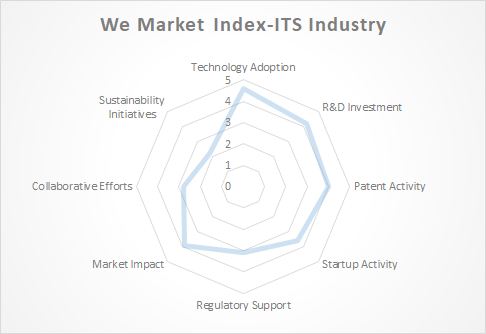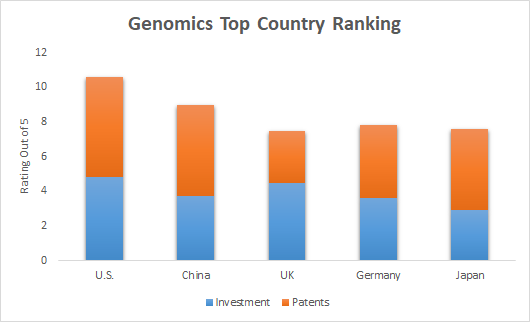The Rise of Online Grocery Delivery: Transforming the Way We Shop
The
way we shop for groceries has undergone a massive transformation in recent
years. The rise of grocery delivery market services has not only revolutionized
the grocery industry but has also significantly altered consumer behavior. This
shift, driven by technological advancements and changing consumer preferences,
has made online grocery shopping more convenient, efficient, and, in many
cases, essential.
The Evolution of online grocery delivery market
Traditionally,
grocery shopping involved visiting local markets or grocery stores, browsing
through aisles, and selecting items from shelves. However, the rapid
development of digital technologies and changing consumer preferences have
paved the way for online grocery delivery services. Consumers now have the
option to shop from online food stores, where they can browse through a vast
array of products, compare prices, and make purchases with just a few clicks.
Growth of the Online Grocery Delivery Market
The
online grocery delivery market has witnessed exponential growth,
particularly in the last few years. As of 2024, it is valued at USD 488.42
Billion, with projections indicating transformative growth in the coming years.
This surge in market value is driven by several factors, including increasing
internet penetration, the proliferation of smartphones, and the growing demand
for convenience.
Several factors have contributed to Online food stores rapid growth:
Ø Changing Consumer Preferences:
Today's consumers value convenience more than ever. Busy lifestyles, urbanization, and the desire to avoid crowded supermarkets have driven the demand for online grocery delivery market services. Consumers can now avoid the hassle of traveling to physical stores, standing in long queues, and carrying heavy bags. Grocery stores that deliver allow customers to order everything they need from the comfort of their homes.
Ø Technological Advancements:
The proliferation of smartphones, improved internet connectivity, and the development of user-friendly apps have made it easier for consumers to browse, select, and purchase groceries online.
Ø Wide Product Range:
Online food stores offer a broader selection of products compared to traditional brick-and-mortar stores. Shoppers can easily find specialty items, organic products, and international brands that may not be available in local stores.
Ø Pandemic-Driven Demand:
The COVID-19 pandemic accelerated the adoption of online grocery shopping. Lockdowns, social distancing measures, and concerns about health and safety led many consumers to turn to online platforms as a safer alternative to in-store shopping.
Ø Expansion of Online Grocery Delivery Market:
Companies have invested heavily in expanding
their delivery networks, ensuring that groceries can be delivered quickly and
efficiently to customers' homes. This has included partnerships with
third-party delivery services and the development of dedicated logistics
systems.
Navigating Challenges in Online Grocery Delivery Market
While the online food delivery
market presents significant opportunities, it also faces several challenges:
· Logistics and Fulfilment:
Ensuring timely and accurate deliveries is a major challenge for online grocery
services. Companies must invest in robust logistics systems and warehouse
management to meet customer expectations.
· Perishability:
Managing the delivery of perishable items, such as fresh produce and dairy
products, requires careful planning and temperature-controlled storage and
transportation.
· Customer
Experience: Building and maintaining customer trust is crucial. This includes
ensuring product quality, providing excellent customer service, and handling
returns or complaints efficiently.
· Competition: The
market is becoming increasingly competitive, with both established players and
new entrants vying for market share. Companies must continually innovate and
differentiate their services to stay ahead of the competition.
Future Outlook: Growth Opportunities
Despite these challenges, the online
grocery delivery market is ripe with opportunities:
· Expansion into
New Markets: As internet penetration increases and consumers in emerging
markets become more accustomed to e-commerce, there is significant potential
for online grocery delivery services to expand globally.
· Integration with
Smart Home Technology: The integration of online grocery platforms with smart
home devices, such as refrigerators that can automatically reorder items,
represents a future growth area.
· Sustainability
Initiatives: Consumers are increasingly concerned about sustainability. Online
grocery companies can differentiate themselves by adopting eco-friendly
practices, such as using recyclable packaging and reducing food waste.
· Personalization
and AI: With advancements in technology, including the use of AI, machine
learning, and automation, grocery stores that deliver are expected to become
even more efficient and customer-centric. Leveraging artificial intelligence
(AI) and data analytics to offer personalized recommendations and shopping
experiences can enhance customer loyalty and drive repeat business.
The Future of Online Grocery Delivery
The
future of online grocery delivery looks promising, with continued growth
expected in the coming years. As technology continues to evolve, we can
anticipate even more innovative solutions that will make online grocery
shopping more convenient and personalized.
· Autonomous
Delivery Vehicles: The use of drones and self-driving vehicles for grocery
deliveries could revolutionize the last-mile delivery process, making it faster
and more cost-effective.
· Subscription
Services: Subscription-based grocery services, where customers receive regular
deliveries of their favorite items, are likely to gain popularity, providing
convenience and predictability.
· Health and
Wellness: Online grocery platforms that focus on health and wellness, offering
personalized nutrition plans and healthy product options, are expected to
attract health-conscious consumers.
Conclusion
The online grocery delivery market
is a rapidly evolving sector that has fundamentally changed the way consumers
shop for groceries. With the growing demand for convenience, time-saving
solutions, and a wide range of products, online food stores and grocery stores
that deliver are becoming increasingly popular. As the market continues to
expand, it presents new opportunities for businesses to innovate and cater to
the evolving needs of consumers.
In
the coming years, the online
grocery market is expected to see even more growth, driven by
technological advancements and changing consumer behaviors. For businesses and
consumers alike, the shift towards grocery store online shopping is more than
just a trend—it’s a transformation that is here to stay.




